2025 Insights on Problem Solving Techniques for Customer Service
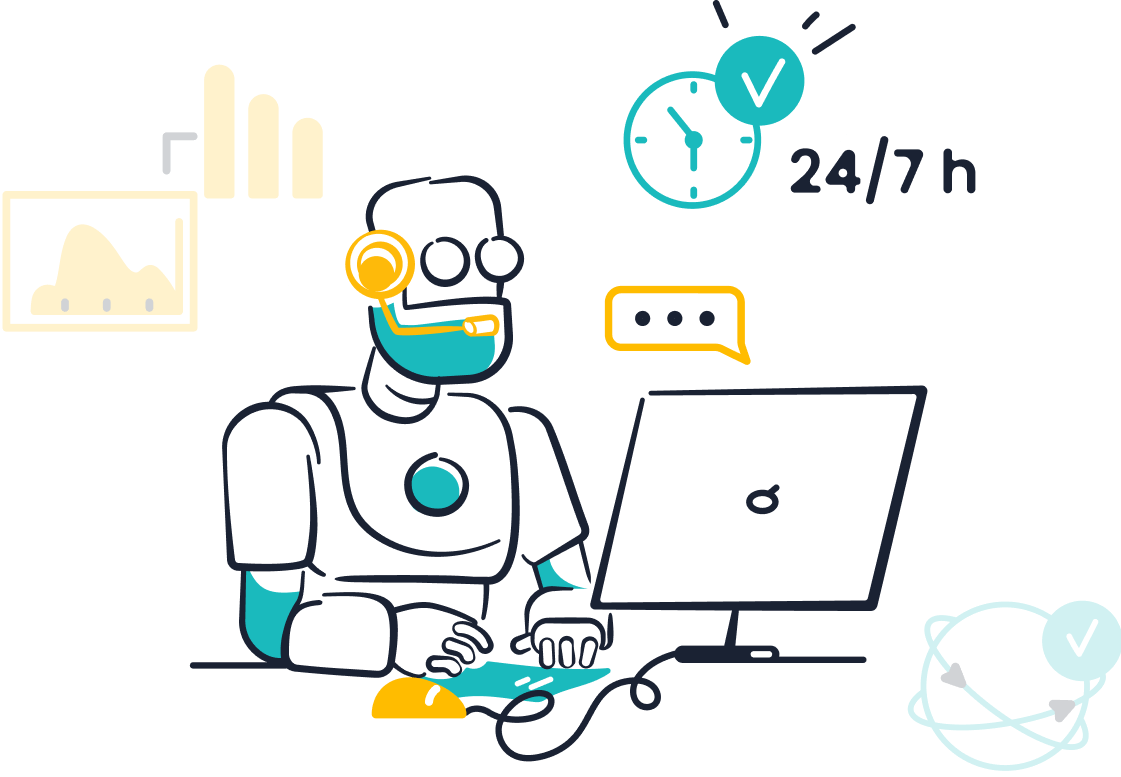
Customer service trends in 2025 highlight a shift toward proactive support, advanced personalization, and the increasing role of AI-driven automation. Sobot AI now manages 95% of customer service interactions, revolutionizing the customer experience with faster problem solving techniques for good customer service and seamless automation. Businesses leverage omnichannel strategies, including solutions like the Sobot call center, to enhance retention and meet rising customer expectations. Sobot leads the way in innovation by integrating AI, automation, and human empathy, empowering teams to deliver exceptional service and stay ahead of the evolving customer service trends for 2025.
Customer Service Trends 2025
Key Shifts in Customer Experience
Customer service trends in 2025 reveal major changes in how companies deliver customer experience. Businesses now recognize that customer service is a key revenue driver, not just a cost center. The rise of AI and automation has transformed the customer service experience, making it more efficient and responsive. Companies use data to personalize every interaction, creating tailored customer experiences that boost satisfaction and loyalty.
- 93% of customer service teams report higher customer expectations than ever before.
- 80% of customers still encounter negative customer service interactions.
- 79% of organizations now see customer experience as essential for growth.
- Personalized experiences are a top trend, with AI helping companies anticipate needs.
- Workforce flexibility is increasing, with remote and hybrid models supported by cloud tools.
- AI and chatbots handle simple requests, freeing agents for complex issues.
- Agent happiness and autonomy are prioritized, reducing turnover and improving service quality.
- Consistent responses to customer reviews help maintain brand reputation.
By 2026, hyper-personalized interactions will become standard. AI will anticipate customer needs before they reach out, and emotional intelligence in AI will allow for more empathetic handling of sensitive issues. These trends shape the future of customer service experience, making it seamless and proactive.
Impact on Problem Solving Techniques
The impact of these trends on problem solving techniques for good customer service is significant. Customers now expect immediate solutions, with 72% demanding instant service. Brands that resolve problems quickly see loyalty rates 2.4 times higher than those that do not. Companies have shifted from reactive to proactive support, using AI-driven automation and data analytics to predict and address issues before they escalate.
Organizations now use a blend of AI and human empathy to deliver fast, context-aware, and personalized service. This approach improves customer satisfaction and builds trust.
Leading customer service organizations in 2025 implement new problem solving techniques for good customer service, such as:
- Proactive support using AI to anticipate and resolve issues.
- AI-driven automation for efficient handling of routine tasks.
- Omnichannel experiences that unify customer interactions across platforms.
- Advanced personalization based on data-driven insights.
- Balanced integration of AI and human empathy.
- Continuous employee training in both technical and soft skills.
- Strong data privacy and security measures.
- Centralized AI-native platforms for real-time insights and workflow automation.
These techniques have measurable results. Companies report up to a 140% improvement in customer satisfaction scores after redesigning processes based on feedback. Operational efficiencies, such as reduced resolution times and improved agent satisfaction, further enhance the overall customer experience. The impact of AI and automation continues to drive the evolution of customer service trends, setting new standards for excellence in 2025.
AI-Driven Automation with Sobot
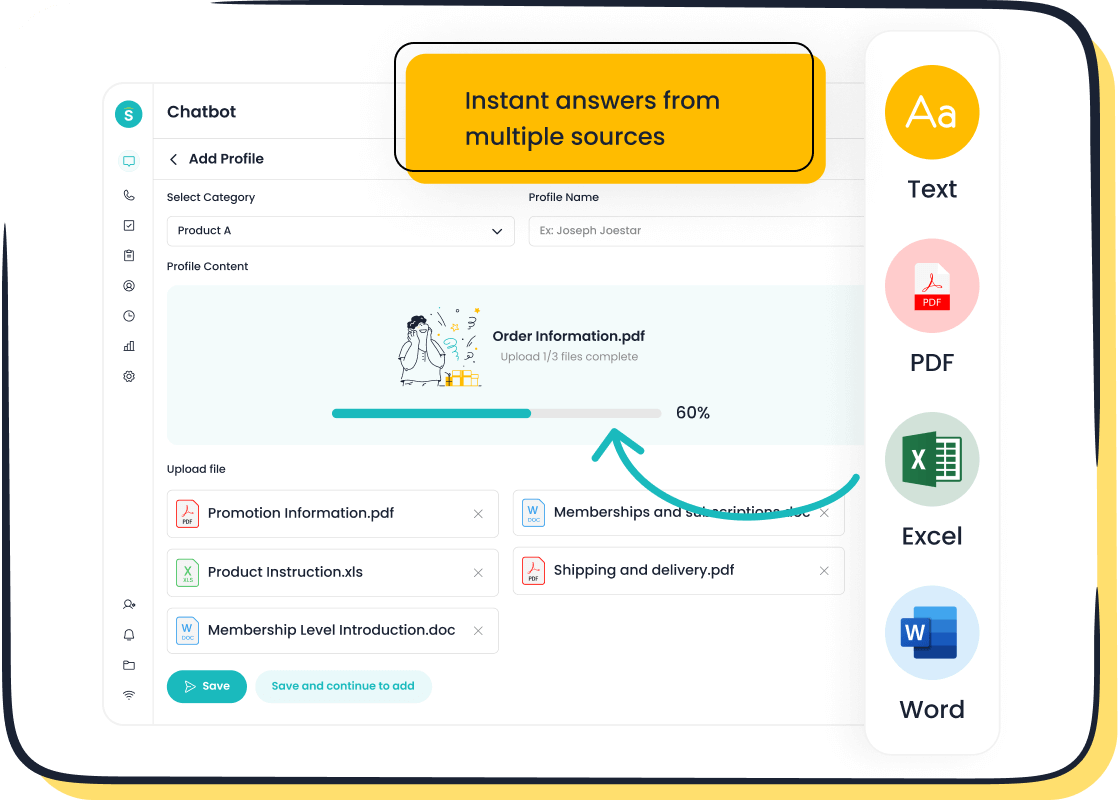
Sobot Chatbot for Good Customer Service
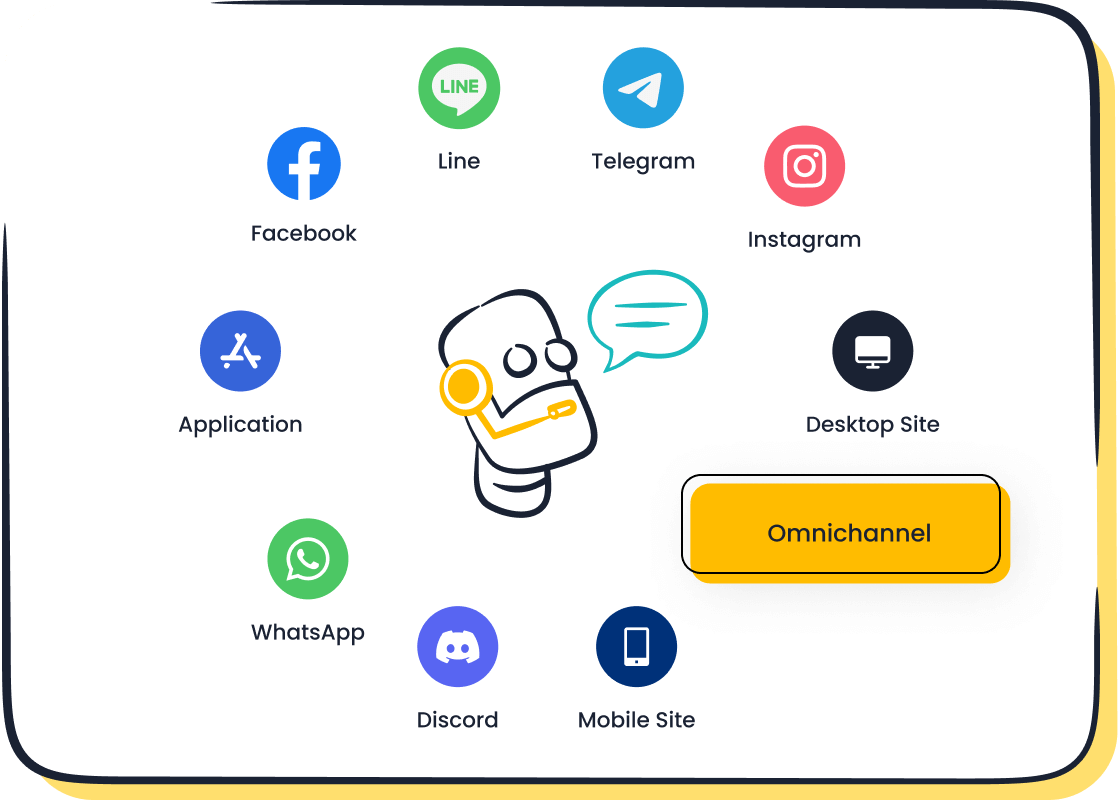
Sobot’s chatbot technology stands at the forefront of ai-driven automation in customer service. The platform brings together advanced ai, automation, and a unified workspace to transform how businesses interact with customers. Sobot’s chatbot automates customer service interactions by integrating voice, chat, email, and messaging into a single, searchable story. This approach prevents customers from repeating themselves and increases first-contact resolution rates.
| Feature | Impact on Customer Interaction Automation |
|---|---|
| Unified Workspace | Combines voice, chat, email, and messaging into one searchable story, preventing customers from repeating themselves and improving first-contact resolution. |
| Voice AI + IVR Integration | Automates up to 70% of routine inquiries, reducing resolution time by about 50% and increasing customer satisfaction by roughly 30%. |
| Knowledge Base Integration | Ensures consistent answers across all channels, enhancing reliability and efficiency. |
| No-code Knowledge Base Authoring | Enables quick updates and management of information without technical expertise, supporting faster response times. |
| Analytics and Issue Flagging | Identifies repeat issues so human agents can focus on complex cases rather than routine triage, optimizing resource allocation. |
Sobot’s chatbot operates 24/7, handling regular queries and assisting agents with real-time intent assistance. Businesses using Sobot report a 25% increase in conversion rates and a 30% reduction in customer support costs. The chatbot responds three times faster than human agents, with 95% of decision-makers noting cost and time savings. Sobot’s automation capabilities allow companies to scale support without increasing headcount, ensuring continuous customer service even during peak periods.
Sobot’s AI-powered chatbot also supports multiple languages and channels, including WhatsApp and SMS. The no-code interface allows businesses to update workflows quickly, keeping information accurate and responses timely. Analytics tools flag recurring issues, so agents can focus on complex customer needs. This combination of automation and ai improves both efficiency and customer satisfaction.
AI Agents and Copilots in Customer Support
AI agents and copilots have become essential in modern customer service. Sobot’s ai-driven automation includes prompt-and-response agents, cognitive agents, and autonomous agents. Each type brings unique strengths to customer support:
- Prompt-and-response agents deliver immediate, natural conversational replies, streamlining routine interactions.
- Cognitive agents learn from user behavior and analyze data to personalize experiences.
- Autonomous agents manage complex tasks independently, optimizing processes and reducing manual intervention.
AI copilots work alongside human agents, reducing cognitive load and accelerating issue resolution. They detect customer sentiment in real time, prioritize urgent cases, and summarize lengthy conversations for quick understanding. Copilots suggest relevant responses from past interactions, polish agent-written messages for tone and grammar, and provide instant access to information. This partnership enables faster, more accurate, and empathetic customer service.
AI copilots improve first contact resolution by giving agents real-time data access and automating routine inquiries. Agents spend less time researching and more time solving complex problems. Copilots summarize customer concerns, so customers do not need to repeat themselves, reducing frustration and increasing satisfaction.
Sobot’s ai agents and copilots support multi-channel engagement, automate workflows, and escalate complex cases to human agents when needed. This hybrid approach ensures that automation handles repetitive tasks, while human agents focus on high-value interactions. The result is improved agent productivity, better customer satisfaction, and operational efficiency.
Real-World Results: OPPO Case Study
OPPO, a global leader in smart devices, partnered with Sobot to enhance its customer service through ai-driven automation. Facing high volumes of customer inquiries during peak shopping periods, OPPO implemented Sobot’s chatbot and ticketing system. The chatbot handled repetitive queries, freeing human agents to address more complex issues.
| Metric | OPPO Performance After Sobot Adoption |
|---|---|
| Chatbot Resolution Rate | 83% |
| Positive Feedback Score | 94% |
| Repurchase Rate Increase | 57% |
| Positive Customer Experience | 90% |
| Operational Cost Reduction | Implied through AI automation |
OPPO achieved an 83% chatbot resolution rate after integrating Sobot’s ai-powered chatbot. The company saw a 57% increase in repurchase rates and a 94% positive feedback score. These results highlight the effectiveness of ai-powered chatbots and automation in improving customer engagement and driving revenue growth. OPPO’s success demonstrates how omnichannel ai integration can transform loyalty programs and boost customer retention.
Sobot’s solutions enabled OPPO to deliver personalized experiences across multiple channels. The integration of global customer channels and business systems improved data accessibility and service quality. OPPO’s operational costs decreased as automation handled routine queries, allowing agents to focus on more valuable tasks.
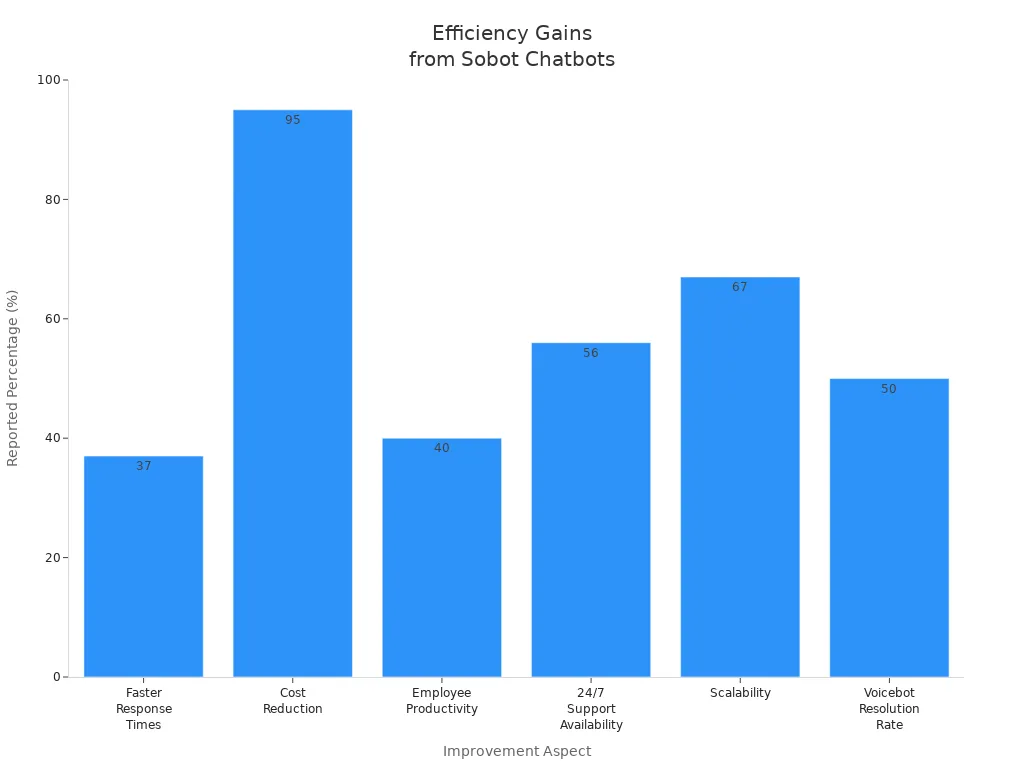
Sobot’s ai-driven automation empowers businesses to achieve measurable improvements in customer service. Companies report up to a 70% improvement in productivity and up to a 50% reduction in service costs. The combination of ai, automation, and human expertise creates a scalable, efficient, and customer-centric support model.
Omnichannel Customer Experience
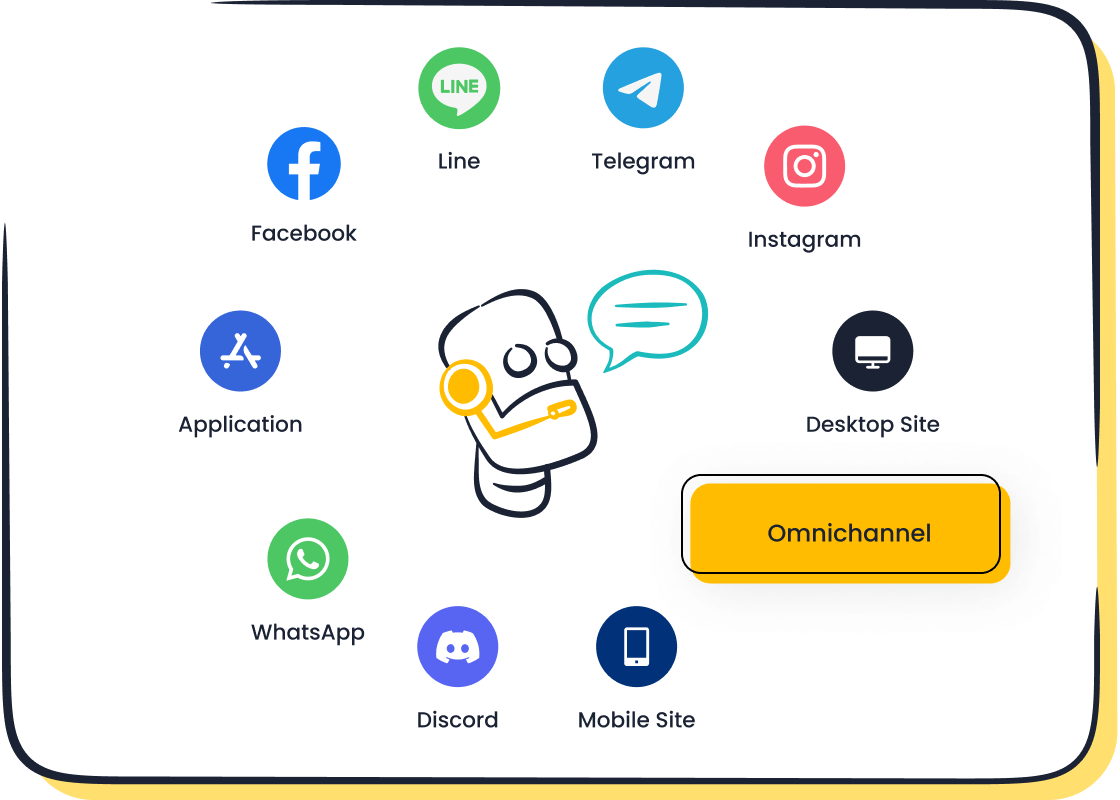
Unified Contact Center Solutions
Unified contact center solutions form the backbone of effective omnichannel experiences in 2025. Companies now focus on delivering consistent messaging and branding at every customer touchpoint. They use platforms that bring together voice, chat, email, and social media into a single workspace. This approach gives agents a complete view of the customer journey and ensures seamless transitions between channels. Real-time synchronization of customer information allows for quick, accurate responses. Organizations break down silos by unifying teams and syncing technology platforms like CRM and CXM systems. Analytics tools help teams optimize processes and make insight-driven decisions. Brands such as Nike and Starbucks have seen success by integrating loyalty programs and offering personalized experiences across digital and physical channels.
Seamless Support Across Channels
Seamless support across channels has become essential for building customer loyalty and retention. Nearly all consumers say customer service interactions influence their loyalty. When companies provide consistent experiences and avoid repeated information requests, they reduce friction and build trust. Customers can switch between online, mobile, and in-person support without losing context. Responsive support and personalized engagement make customers feel valued. Post-purchase support, such as follow-up emails and easy access to help, increases satisfaction and encourages repeat purchases. Loyalty programs and brand communities further deepen engagement and retention. Companies that unify their communication systems and prioritize responsiveness see higher retention rates and stronger customer relationships.
Enhancing Customer Experience with Sobot
Sobot enhances the omnichannel customer experience by offering a unified workspace that consolidates all communication channels. Agents can view complete customer histories and respond quickly, improving both efficiency and satisfaction. Sobot’s AI-powered chatbots handle up to 80% of routine questions, providing instant answers and freeing human agents for complex issues. Real-time analytics and feedback tools, such as CSAT and NPS, help monitor and improve customer experience. CRM integration ensures agents access customer histories for more personalized service. Sobot’s platform maintains consistent service quality across channels, which increases customer satisfaction and retention. Staff training and ongoing support empower teams to deliver excellent customer service. With global network support, Sobot ensures reliable service for businesses worldwide. These features create seamless, personalized, and efficient customer experiences that drive engagement and loyalty.
Personalization in Problem Solving Techniques
Predictive Analytics for Customer Service
Predictive analytics has become a cornerstone of advanced personalization in customer service. Companies use historical and real-time data with AI to forecast customer behaviors and anticipate needs. This approach enables proactive support by detecting potential issues before they arise. Teams can intervene early, reducing customer churn and improving customer satisfaction. Predictive analytics also helps personalize interactions by analyzing preferences and behavior, which boosts engagement and retention. Automated alerts and troubleshooting guides speed up issue resolution and reduce downtime. The following table highlights how predictive analytics improves problem solving in customer service:
| Benefit Category | How Predictive Analytics Improves Problem Solving in Customer Service |
|---|---|
| Improved Customer Satisfaction | Anticipates needs, reduces resolution times by addressing issues early, and enhances communication. |
| Enhanced Personalization | Tailors recommendations and communication, improving retention and customer loyalty. |
| Proactive Issue Resolution | Prevents issues before escalation, reduces downtime, and protects brand reputation. |
| Cost Savings and Efficiency | Optimizes resource allocation, reduces wasted efforts, and streamlines service processes. |
Hyper-Personalized Interactions
Hyper-personalized interactions set new standards for customer engagement in 2025. AI-driven personalization tailors every touchpoint, making each customer feel valued. Companies see measurable benefits from this approach:
- 60% of consumers are more likely to return after a personalized shopping experience.
- 86% of companies report positive business outcomes from hyper-personalization.
- Personalized marketing delivers up to 8x return on investment.
- 56% of customers become repeat buyers after personalized experiences.
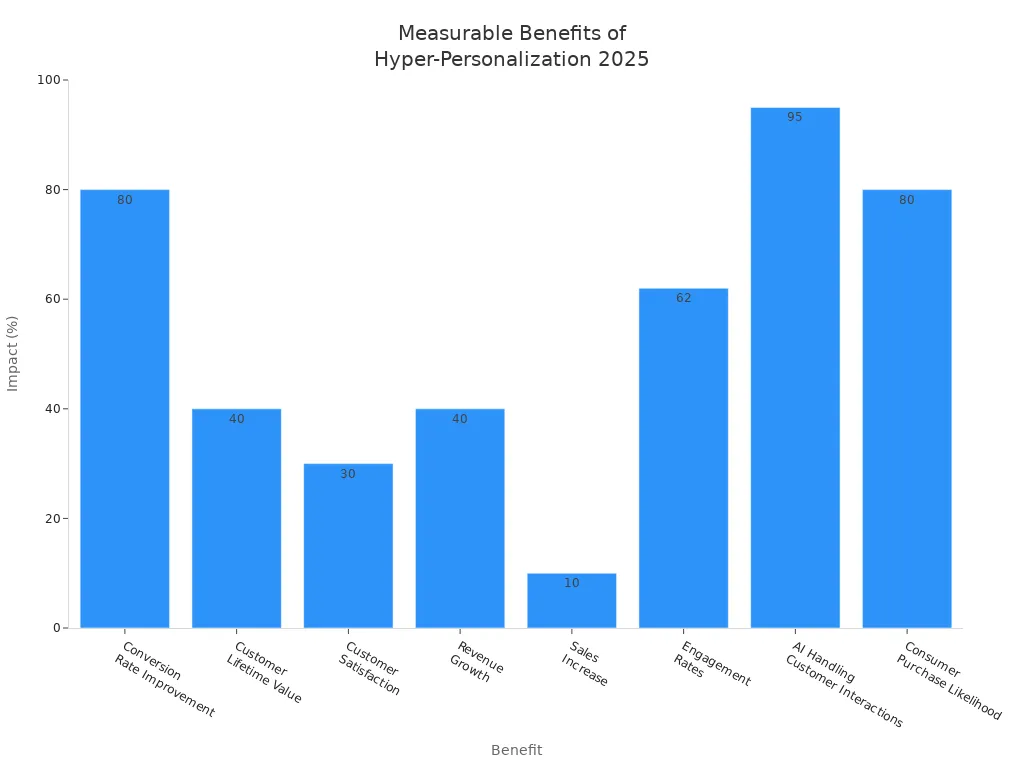
Personalized service increases conversion rates, customer lifetime value, and overall customer satisfaction. Companies that focus on handling customer feedback and proactive support see higher retention and loyalty.
Data Privacy and Trust
Personalization relies on trust. Companies must protect customer data to deliver personalized service while maintaining confidence. Best practices include:
- Using strong encryption for data storage and transmission.
- Training employees on privacy and secure data handling.
- Applying Privacy by Design principles from the start.
- Ensuring transparency in data collection and providing clear consent options.
- Regularly auditing privacy measures and maintaining compliance.
- Educating customers about privacy and involving them in feedback processes.
Business leaders who embed a culture of privacy and proactive customer success build lasting trust. Handling customer feedback with care and balancing personalization with privacy help companies achieve high customer satisfaction and loyalty.
Human Touch in Customer Service
Empathy and Emotional Intelligence
Empathy stands at the heart of every successful customer service interaction. Agents who practice empathy listen actively, understand the customer’s perspective, and validate emotions. This approach builds trust and strengthens relationships. Human empathy transforms routine exchanges into memorable experiences, especially when customers face complex or emotionally charged issues. Emotional intelligence, which includes self-awareness and social skills, empowers agents to recognize emotional cues and respond with compassion. When agents use empathy, they de-escalate tense situations and create a sense of belonging. Customers feel valued, leading to higher customer satisfaction and loyalty. Automated systems can process requests quickly, but only human empathy delivers the emotional validation that customers seek. Empathetic automation, which blends AI with emotional intelligence, further enhances proactive support by recognizing and responding to user emotions. This combination ensures that every customer receives personalized attention and meaningful solutions.
Training for AI-Enhanced Teams
Organizations invest in training programs that develop both technical and emotional skills. Hands-on practice with AI tools helps agents build confidence. Structured learning paths, such as micro-learning and peer mentoring, reinforce empathy and human empathy in daily interactions. Training simulations prepare teams for real-world challenges, emphasizing the importance of empathy in every scenario. Continuous education ensures agents adapt to new AI features and maintain high standards of customer satisfaction. Teams learn to interpret AI insights, troubleshoot issues, and deliver proactive support. Regular feedback and performance tracking help agents refine their empathy skills. By handling customer feedback effectively, organizations foster a culture of growth and improvement. This approach ensures that human empathy remains central, even as technology evolves.
Balancing Automation and Human Support
The optimal customer service model blends automation with human empathy. AI handles routine tasks, allowing agents to focus on complex cases that require empathy and nuanced judgment. Organizations use sentiment analysis to detect frustration and escalate issues to human agents when needed. This seamless handoff maintains a high level of customer satisfaction. Human empathy ensures that customers receive compassionate responses during difficult moments. By handling customer feedback and monitoring workflows, organizations adjust the balance between automation and human support. Empowered agents use empathy to personalize solutions and build lasting trust. This strategy creates a customer experience that is efficient, responsive, and deeply human.
Customer service trends in 2025 show rapid adoption of AI, omnichannel support, and hyper-personalization. Companies use agentic AI and copilots to automate routine tasks, letting agents focus on building relationships. Omnichannel experiences and proactive support have become standard, with integrated data systems improving customer experience. Solutions like Sobot help businesses reduce churn, boost satisfaction, and maintain a competitive edge. Teams that invest in customer service strategies and continuous innovation will lead the way as technology and human empathy shape the future.
FAQ
What are the most effective problem solving techniques for good customer service in 2025?
Companies use AI-driven automation, predictive analytics, and omnichannel support. Sobot’s solutions help teams resolve issues faster and personalize every interaction. These customer service trends improve satisfaction and loyalty. For more details, see Sobot’s AI Chatbot.
How does Sobot improve customer service efficiency?
Sobot automates routine tasks and supports agents with real-time data. The chatbot handles up to 80% of common questions. Agents focus on complex cases. This approach increases productivity by 70% and reduces costs by 50%.
Why is omnichannel support important for customer service trends in 2025?
Omnichannel support lets customers reach businesses on any platform. Sobot unifies chat, voice, email, and social media. This seamless experience boosts satisfaction and retention. Customers do not repeat information, and agents respond faster.
How does Sobot ensure data privacy in customer interactions?
Sobot uses strong encryption and follows GDPR standards. The platform protects customer data during every interaction. Regular audits and privacy training keep information secure. Customers trust brands that prioritize privacy.
Can Sobot’s AI chatbot handle multiple languages and channels?
Yes. Sobot’s AI chatbot supports many languages and works across WhatsApp, SMS, and more. The no-code setup allows quick updates. Businesses reach global customers and provide consistent service everywhere.
See Also
Enhancing Customer Support Efficiency With AI Technology
Effective Strategies For Managing Call Center Quality
Top Ten Ways To Improve Live Chat Experience
